- Clinical Care
- Education
- Centers
- Research
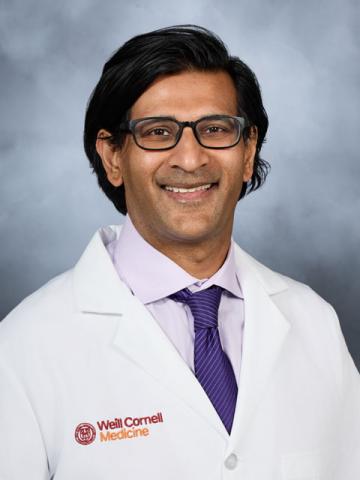
Arnab K Ghosh, MD, MSc, MA is Assistant Professor of Medicine at Weill Cornell Medical College of Cornell University, where his research program focuses on climate change and health, and development of interventions to protect vulnerable populations against climate-amplified threats. He is also a practising internist. He is a fellow of the Atkinson Center for Sustainability and Center of Health Equity at Cornell University. He received his undergraduate medical degree and graduate degree in development studies at the University of Melbourne, Australia, and graduate degrees in health policy, and clinical/translational sciences at Cornell University. He undertook his training in emergency medicine at the Royal Melbourne Hospital in Melbourne, Australia, and Internal Medicine at NYU School of Medicine. He continues to practice medicine, and currently serves as a Medical Officer as part of the Disaster Medical Assistant Teams within the US Government’s National Disaster Medical System.
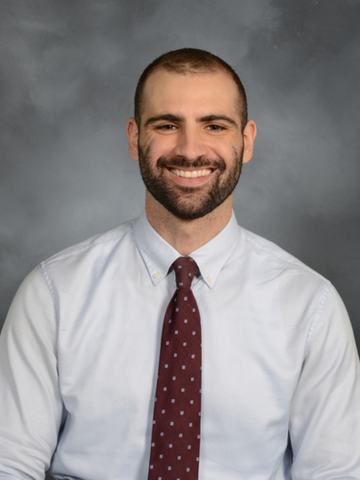
Christopher J. Gonzalez, MD, MS, Assistant Professor of Medicine in the Division of General Internal Medicine, was the inaugural Health Equity Research Fellow at Weill Cornell Medicine. His research aims to understand and leverage social and cultural behaviors to improve the health of diverse Hispanic populations in the United States. Through collaborations with investigators of the national Hispanic Community Health Study/Study of Latinos (SOL), the Duke Network Analysis Center (DNAC), and the New York Regional Center for Diabetes Translation Research (NY-CDTR), he has explored the heterogeneity of health behaviors and health outcomes of the Hispanic population, with a specific focus on understanding the roles of acculturation and social connectedness. His research predominantly assesses how these factors relate to inequities in cardiometabolic health, including obesity and diabetes prevention, but has also assessed their relation to COVID-19 and Hepatitis C. Dr. Gonzalez has received funding from the NIDDK and NHBLI, and received the Robert Wood Johnson Foundation's Harold Amos Medical Faculty Development Program Award in 2024. His research is informed by his practice of primary care at Settlement Health, a federally qualified health center in East Harlem.

Christopher B. Braun, PhD, Co-Associate Program Director, Associate Provost for Research and Professor of Psychology at CUNY-Hunter College, is a basic researcher studying brain circuits for communication and motor action in an evolutionary context. This research is focused on the way the nervous system collects and compares or integrates sensory information to direct appropriate behavioral output. His research on the evolution of audition, multimodal sensing and their evolutionary transitions has been supported by the NIH and NSF and has been conducted in the laboratory and field sites in Brazil, Peru, and Madagascar. In his role as Associate Provost and on the CHERF Fellowship leadership team, Dr. Braun serves as a bridge between the behavioral scientists and public health researchers at Hunter and the fellows in the CHERF program.

David Scales, MD, PhD, is an internal medicine hospitalist and assistant professor of medicine at Weill Cornell Medicine and Chief Medical Officer at Critica, an NGO focused on building scientific literacy. His research focuses on medical communication in clinical and online settings, including understanding how structural factors affect our information environments to allow misinformation to propagate and misconceptions to persist. Dr. Scales’ work leverages qualitative and quantitative methods to address the problem of health-related misinformation, training “infodemiologists” to build Covid-19 vaccine confidence in online communities with community-oriented motivational interviewing. Dr. Scales received his MD and PhD from Yale University, where his sociology dissertation examined how the World Health Organization seeks to control the spread of diseases across international borders. He completed a primary care Internal Medicine residency at Cambridge Health Alliance in Cambridge, Massachusetts. Dr. Scales holds a certificate of medical interpretation in Levantine Colloquial Arabic from U. Mass Amherst and has worked with refugees in the US and throughout the Levant.

Erica Phillips, MD, MSc, Community Engagement Faculty Mentor, is a general internist and obesity medicine specialist. Over the past 20 years, her research efforts have focused on translating social and behavioral science theories into effective community-based interventions to address health inequities in high-risk populations. Dr. Phillips began this journey with formal research training in clinical epidemiology and health services research (AHRQ T32) at Weill Cornell Medicine, a long-standing successful training program upon which CHERF rests. Since completing the fellowship, she joined the full-time faculty and has been involved in the training of dozens of fellows with research interests in obesity medicine, diversity in the healthcare workforce, health behavior change, and community-engaged research principles. She is a Multiple Principal Investigator on an NIMHD-funded P50 Center grant, the NY COMMUNITY Center, as well as an NCI-funded U54, both focused on achieving health equity in NYC.
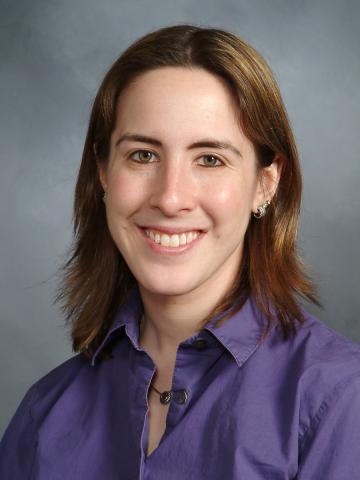
Erika Abramson, MD, MSc, Evaluation Director, is a pediatrician health services and educational researcher. Her health services research has focused on the adoption and use of health information technology and health information exchange to improve patient safety, while her educational research has focused on educational efforts to improve scholarly training for trainees. Dr. Abramson has expertise in research involving large data sets, large-scale survey administration, and qualitative methodology. She has over 100 peer-reviewed publications, led 35 national workshops, and has served as PI or co-investigator on multiple institutional, state, and federal grants, including grants funded by PCORI, AHRQ, and the Empire Clinical Research Investigator Program. In recent years, her career focus has shifted significantly to educational leadership and mentoring of trainees. Dr. Abramson currently serves as the Assistant Dean of Medical Education Research, Outcomes, and Innovation for Weill Cornell Medical College, Vice Chair for Health Equity and Medical Education Research for the Department of Pediatrics, co-director of a Healthcare Policy and Research Fellowship, and the Associate Program Director for Pediatric Graduate Medical Education, where she oversees its rigorous resident research program. Dr. Abramson has trained or mentored many students, residents, fellows, and junior faculty, a number of whom have gone on to receive career development awards. She has received multiple teaching/mentoring awards, including 2 national awards from the Association of Pediatric Program Directors and the prestigious Dean’s Award in Mentorship from the Weill Cornell Medical College.

Iris Navarro-Millán, MD, MSPH, is an Associate Professor of Medicine at the Division of General Internal Medicine at Weill Cornell Medicine and the Division of Rheumatology at Hospital for Special Surgery. She is a rheumatologist, health outcome, health disparity, and implementation scientist researcher. Her research focuses on rheumatoid arthritis and osteoarthritis. She has assumed multiple leadership roles in the past including associate director of outpatient rheumatology practice at Cooper Green County Hospital in Birmingham, AL and as the president of the Alabama Society of Rheumatic Diseases. She is the director of her research laboratory called “Research Rheum” that oversee a team of research assistants, data analysts, peer coaches for patients with arthritis, and mentor multiple residents, rheumatology fellows, and junior faculty in clinical research in rheumatology.

Dr. Jennifer Bayly is a primary care physician and health services researcher in the Division of General Internal Medicine at Weill Cornell Medicine. She is dedicated to examining the socio-structural determinants that shape health behaviors and perpetuate health inequities. She holds a B.S. in Biobehavioral Health from Pennsylvania State University, an M.D. from Rutgers University-Robert Wood Johnson Medical School, and an M.P.H. from the Harvard T.H. Chan School of Public Health. Following her Internal Medicine residency in the Primary Care Track at Boston Medical Center, she completed a General Medicine Research Fellowship at Harvard Medical School/Beth Israel Deaconess Medical Center. Her research primarily investigates how neighborhood and contextual factors contribute to chronic diseases, such as cardiovascular disease, with the goal of informing policy and guiding intervention development.

Dr. Jialin Mao is an Assistant Professor in the Department of Population Health Sciences at Weill Cornell Medicine. She is an epidemiologist with a background in medicine. Dr. Mao received her MD from Shanghai Jiao Tong University School of Medicine and completed part of her residency in General Surgery at Ruijin Hospital in Shanghai, China. She received her MS in Epidemiology from Harvard School of Public Health and her PhD in Epidemiology at Columbia University Mailman School of Public Health. Her expertise is in epidemiologic study design and advanced data analysis for medical device and interventional care research. Her current research focuses on health disparities related to medical devices and interventional care. She is also interested in improving methods and infrastructure to support the evaluation of medical device and interventional care outcomes and associated disparities.

Dr. Lechuga graduated from the University of Texas at El Paso with a PhD in health psychology in 2008 and completed an NIH-NRSA postdoctoral fellowship at the Medical College of Wisconsin in 2010. She has over 15 years of experience assessing the needs of Latine communities to promote sexual and reproductive health in the U.S. and Central America and developing, implementing and testing behavioral interventions aimed at reducing ethnic health disparities at the intersection of substance use, infectious diseases, and reproductive health. She employs a CBPR framework and her interventions address factors at the policy, community, and individual levels.
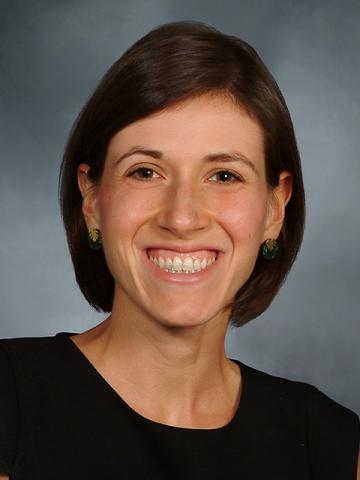
Laura C. Pinheiro, PhD, MPH, Curriculum Director, is Assistant Professor of Health Services Research in Medicine in the Division of General Internal Medicine at Weill Cornell Medicine. She also has a secondary appointment in the Division of Epidemiology in the Department of Population Health Sciences and is the Assistant Director of Community Outreach and Engagement for the Meyer Cancer Center at Weill Cornell Medicine. Dr. Pinheiro uses quantitative and qualitative methods to develop and evaluate real-world interventions to improve health outcomes, equity, and care delivery for patients with cancer. Dr. Pinheiro’s research program is funded by the National Cancer Institute, the National, Heart, Lung and Blood Institute, The New York State Department of Health, and ASCO’s Conquer Cancer Foundation.
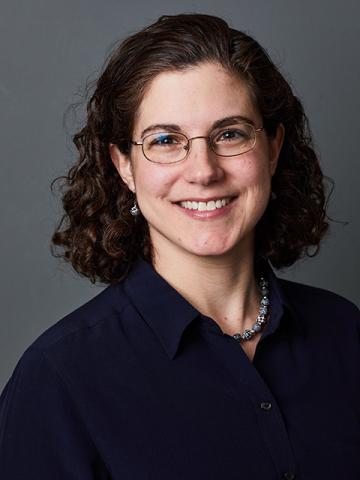
Lisa M. Kern, MD, MPH is an Associate Professor of Medicine and Associate Director of Research in the Division of General Internal Medicine in the Department of Medicine at Weill Cornell Medicine. Dr. Kern’s clinical background is in general internal medicine, and her MPH degree included a concentration in health policy and management. Dr. Kern is a health services researcher whose work focuses on improving the delivery of ambulatory care, especially for patients with chronic conditions. She has become a national expert on healthcare fragmentation in the ambulatory setting, which occurs when a patient is cared for by many different outpatient providers, but no single provider accounts for a substantial proportion of visits. Dr. Kern is currently conducting two pragmatic clinical trials to address fragmented care and prevent avoidable adverse consequences. Dr. Kern has published more than 110 peer-reviewed articles. She has served or is serving as PI or co-PI on 18 grants and contracts. Dr. Kern has 20 years of experience teaching research methods and, separately, healthcare organization and delivery, for all levels of trainees (including medical students, residents, fellows, master’s students, and junior faculty). Dr. Kern currently serves as a co-mentor for 2 K awardees. Dr. Kern received her undergraduate and medical degrees from Harvard University, and she received her Master of Public Health degree from Johns Hopkins University.
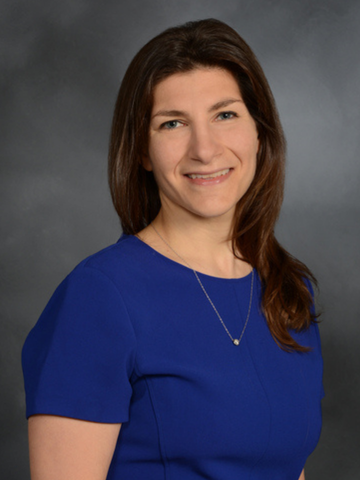
Madeline Sterling, MD, MPH, MSc, is a practicing general internist and health services researcher. She is an Associate Professor of Medicine at Weill Cornell Medicine and the Director of the Initiative on Home Care Work at Cornell University. Her research aims to improve health and healthcare delivery for adults with cardiovascular disease and other chronic conditions so that they can remain at home, avoid unnecessary hospitalizations, and age in place. To do so, she focuses on home health care, and in particular, training and empowering the home health aide workforce to improve patient care. Despite being the minute-to-minute observers of patients in the home, research has rarely focused on this marginalized workforce, which is comprised of mostly women and people of color. Her work seeks to change that and the way that clinicians interact with this large untapped segment of the healthcare sector. Dr. Sterling has published over 90-peer reviewed articles and obtained several grants as principal investigator from the NIH and other foundations. She particularly enjoys mentoring trainees and research team members, and fostering a collaborative, team-science environment.
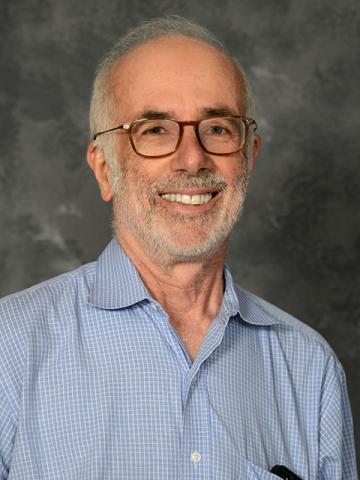
Martin Shapiro, MD, PhD, Co-Associate Program Director and Director of Recruitment and Admissions, is an accomplished health services researcher (and an elected member of the American Society for Clinical Investigation and the Association of American Physicians). Dr. Shapiro’s scholarship has largely focused upon access to care and disparities in health. His HIV Cost and Services Utilization Study has been widely recognized for affecting policy in HIV care through study of access, diffusion of innovation, costs and utilization, mental health, outcomes, and the impact of the Ryan White Care Act on key measures. He is very experienced in the mentorship of fellows towards careers in primary care research. Dr. Shapiro founded UCLA’s HRSA-funded primary care research T32 fellowship program, led it from 1988 to 2003, and remained involved until his move to Weill Cornell in 2017. He has personally mentored many fellows who went on productive careers in primary care research, leadership roles in the DHHS, directing fellowship programs in health services/primary care research, and leadership of major community health care programs. He was Division Chief in General Internal Medicine at UCLA for over two decades and is a past president of the Society of General Internal Medicine (SGIM). SGIM honored him with the Herbert Nickens Award for his efforts in successfully mentoring many minority fellows and faculty to academic and policy success. His book, The Present Illness: American Health Care and Its Afflictions, was published recently by John’s Hopkins University Press.
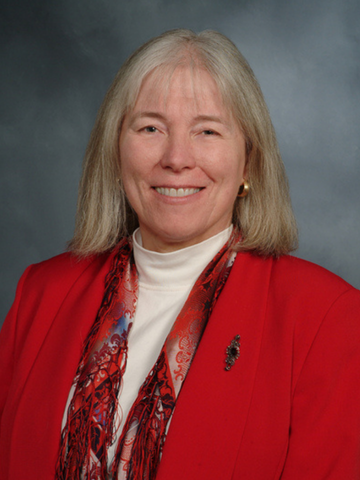
Monika M. Safford, MD, Program Director, is a general internist and health services researcher with a focus on eliminating disparities in cardiometabolic disease outcomes, especially focused on socially marginalized populations. Dr. Safford has been the Principal Investigator of studies funded by NIH, ADA, PCORI, CDC, the VA, and AHRQ to conduct both observational research and pragmatic behavioral intervention trials. All four of the trials that Dr. Safford has conceptualized and led were among economically disadvantaged people of color. She is an award-winning mentor with a past K24; she has trained dozens of investigators to research primary care topics, including medication adherence, behavior change, peer support, clinical epidemiology, patient-physician communication, and practice change. Dr. Safford counts among her mentees the head of a major pharmaceutical company’s health services research group; a Dean of a School of Public Health; and several full Professors and Associate Professors with independent research careers in primary care topics.


Dr. Ro-Jay Reid is an Assistant Professor of Medicine at Weill Cornell Medicine in the Division of General Internal Medicine. He began his academic journey with a Biochemistry degree from Oakwood University, then earned his medical degree from Ross University School of Medicine. Driven by a commitment to patient care, Dr. Reid completed his Internal Medicine residency at St. Joseph’s University Medical Center before joining Weill Cornell in 2021 as an Instructor in Medicine and a Cornell-Hunter Health Equity Research Fellow.
Dr. Reid’s research interests, inspired by his humanitarian work in underserved areas like Haiti and Mozambique, focus on addressing health disparities and promoting healthy aging. He currently leads several notable projects, including studies under the REasons for Geographic And Racial Differences in Stroke (REGARDS) study. In addition, he conducted a qualitative study examining perceptions of healthy aging among individuals with heart failure across neighborhoods of varying affluence and is currently in the process of pilot-testing these findings with a larger patient population.
His impactful work has received funding from the National Institute on Minority Health & Health Disparities, the National Heart, Lung, & Blood Institute, and the American Heart Association.
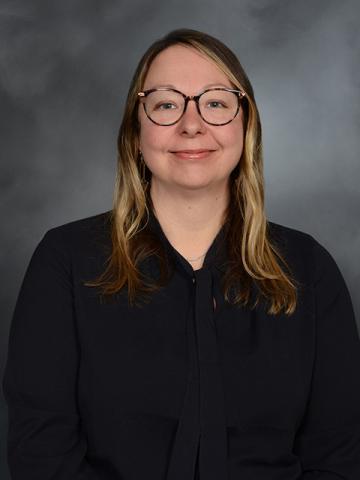
Sarah Young, PhD, MSW is Associate Professor of Social Work Research in Medicine. A social worker by profession, Dr. Young is working to support and strengthen qualitative research methods in the Division of General Internal Medicine. Additionally, she partners closely with Dr. Navarro-Millán to generate evidence-based interventions that support patients with RA to reduce cardiovascular risk and improve diet, mental health, and physical activity. Other areas of Dr. Young’s work include understanding behavioral and physical health outcomes for LGBTQ+ populations, and in particular understanding the impact of family acceptance and rejection on LGBTQ+ populations and how this impacts health outcomes and clinical care.
